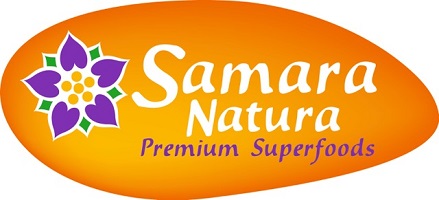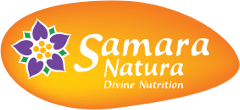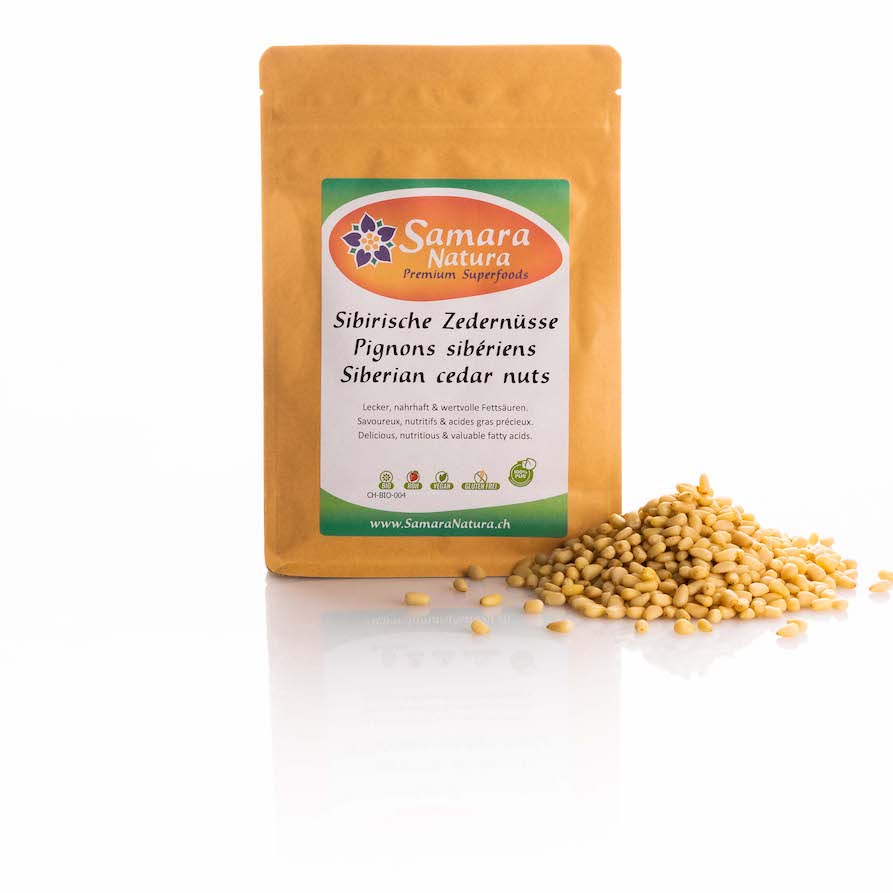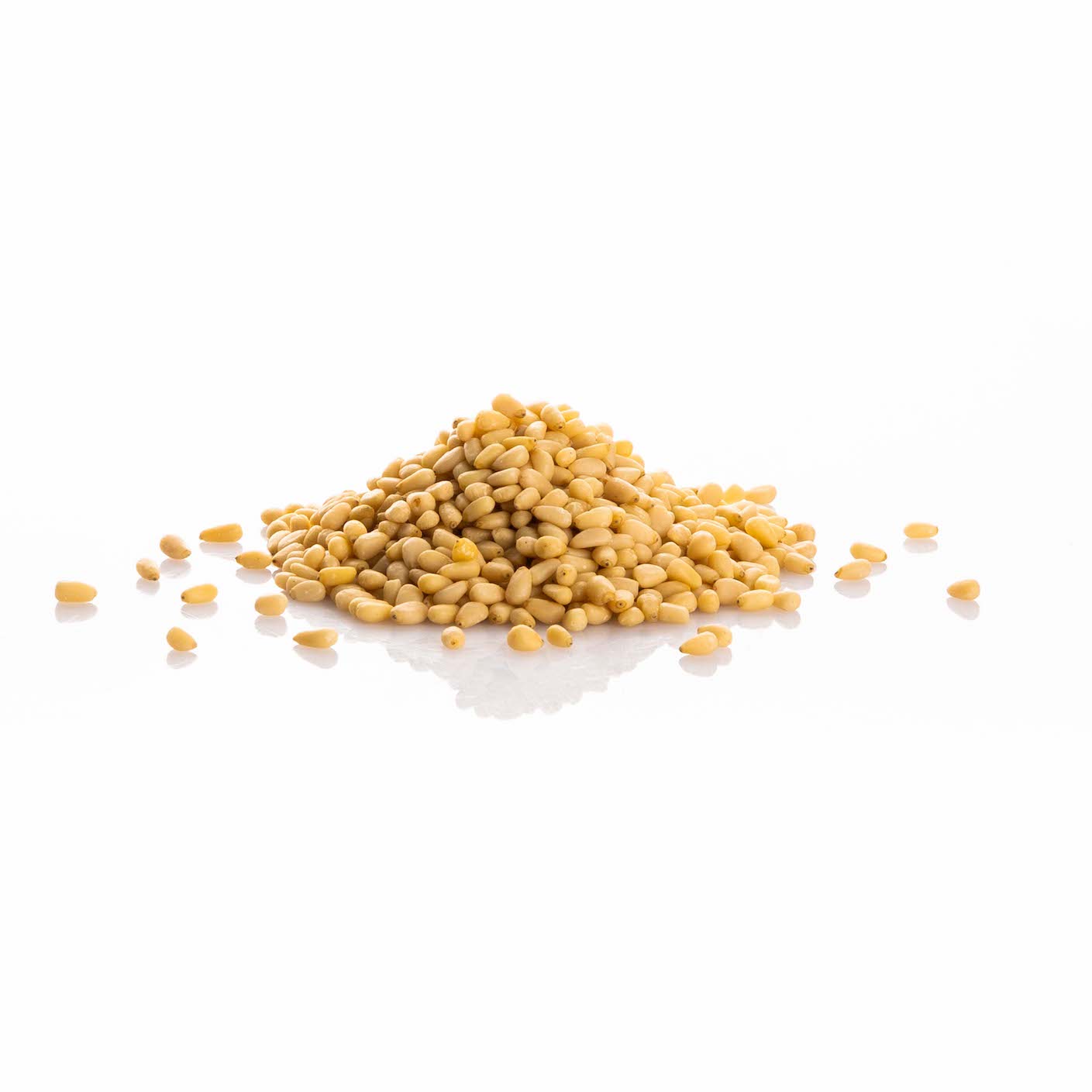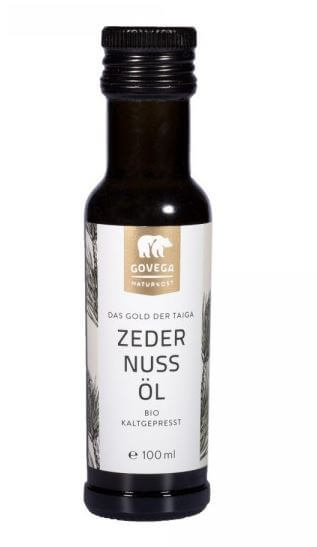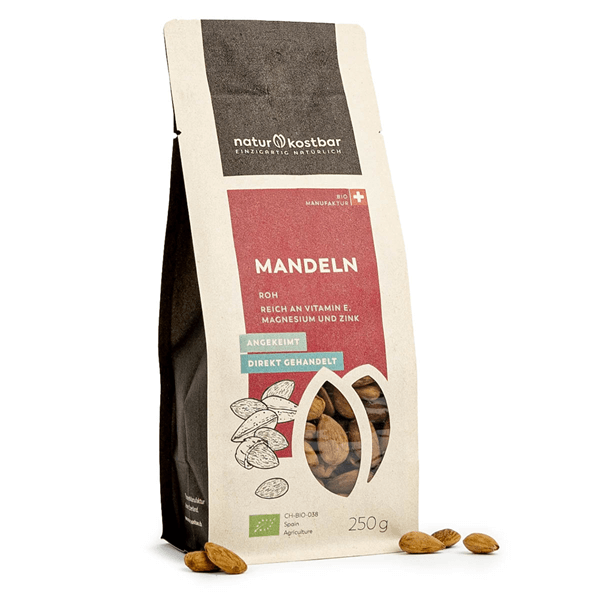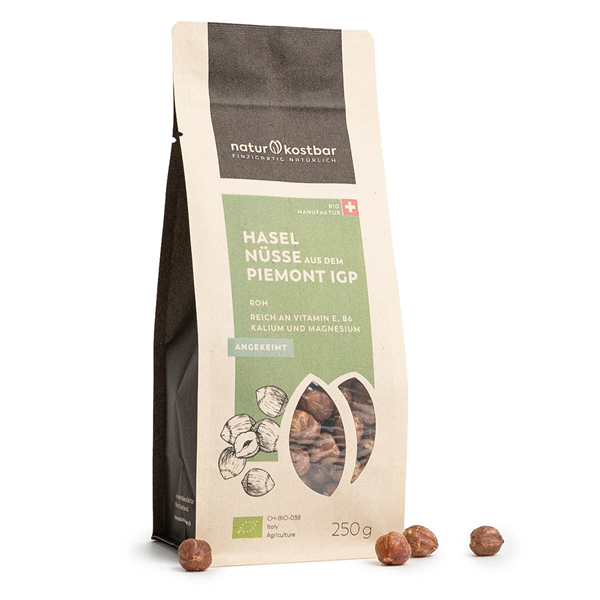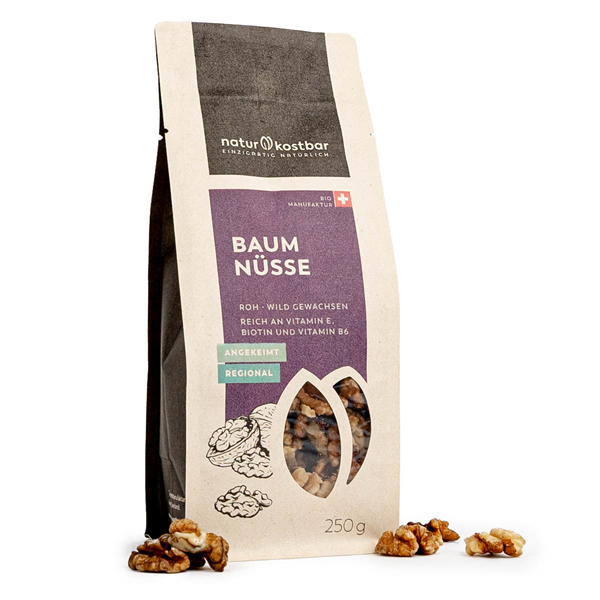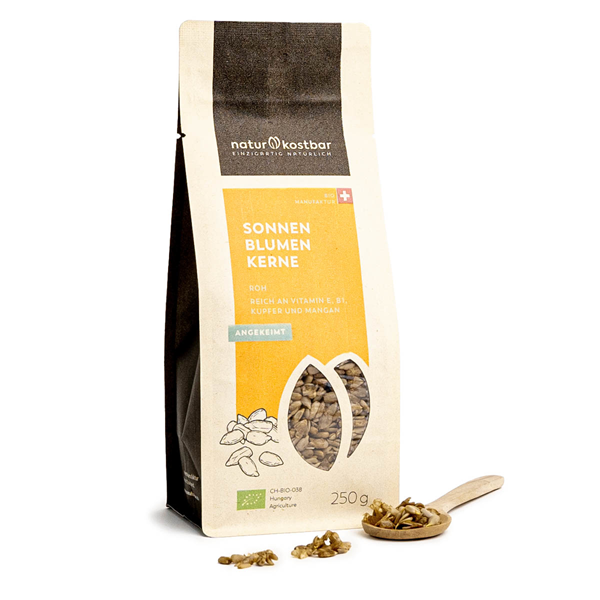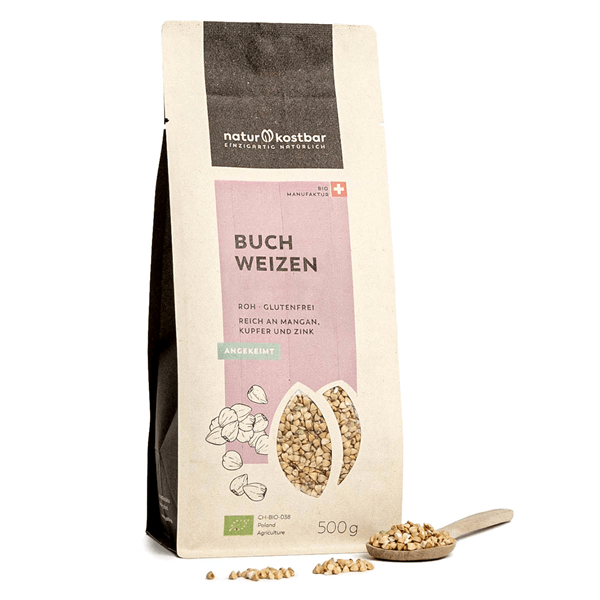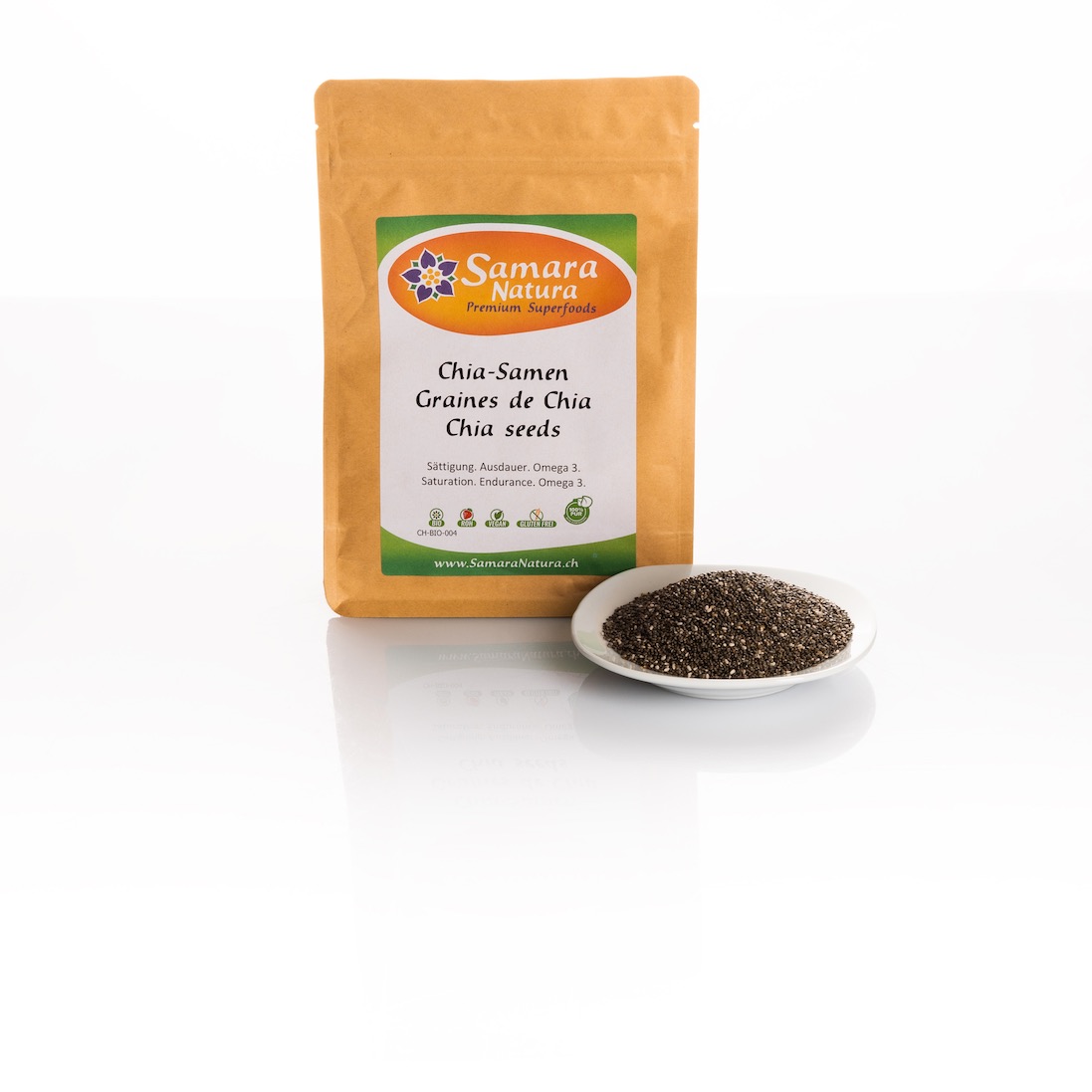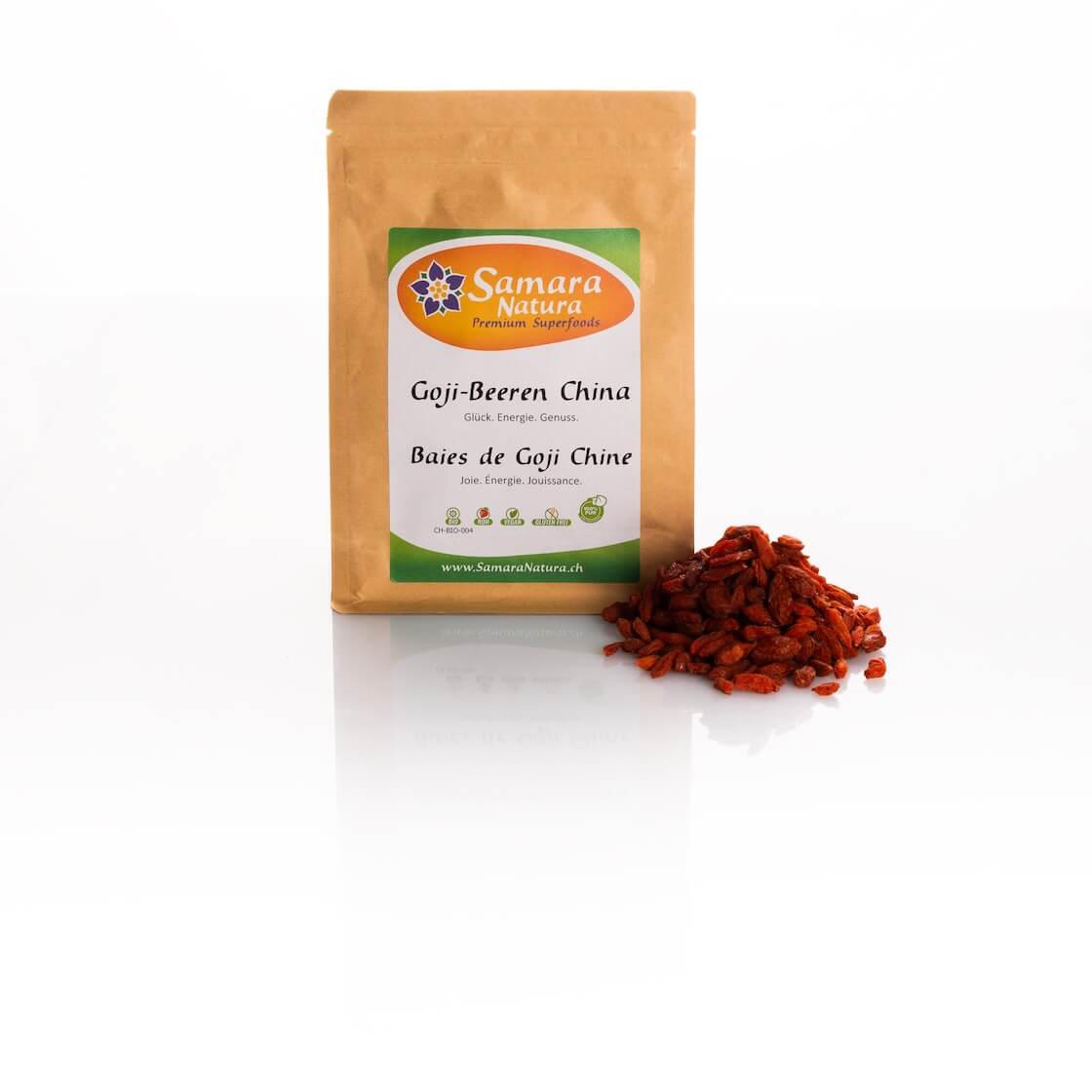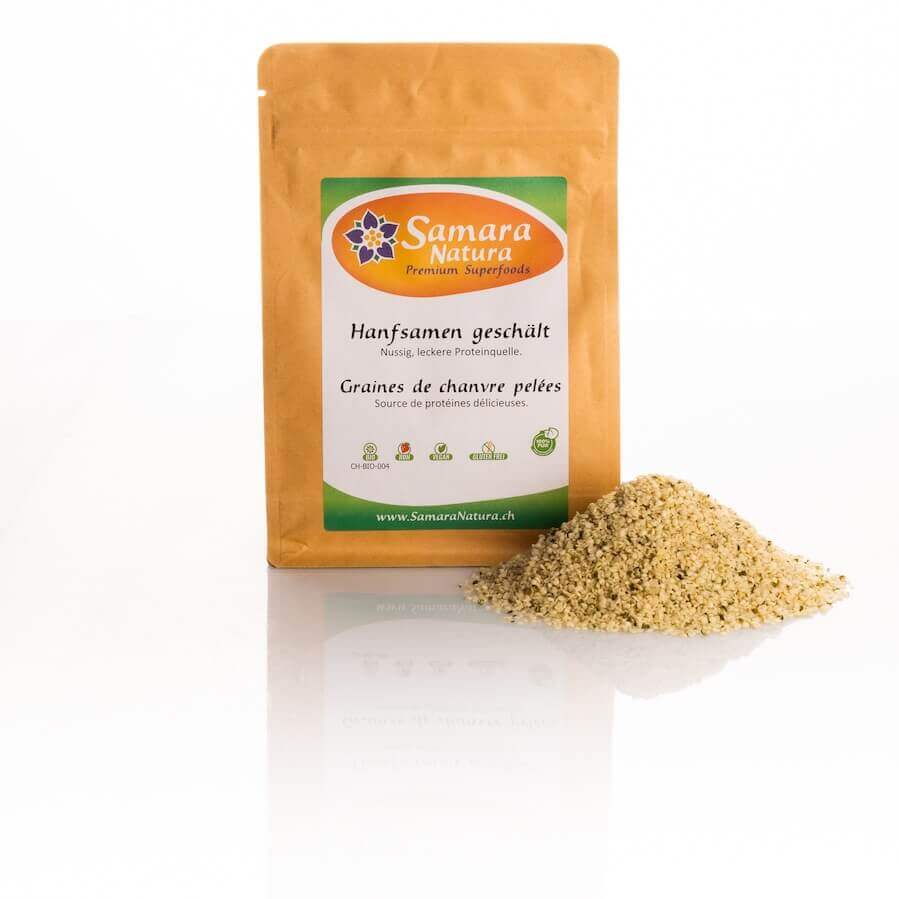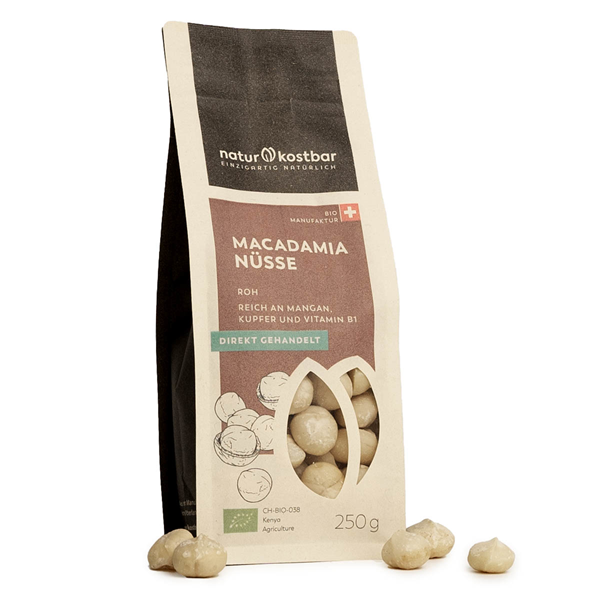| Quantity | Unit price | Base price |
|---|---|---|
| To 2 |
CHF 21.00*
|
CHF 8.40* / 100 Gramm |
| From 3 |
CHF 19.95*
|
CHF 7.98* / 100 Gramm |
Available, delivery time: 1-4 days
Product information "Cedarnuts Organic"
Cedar nuts from Siberia - a treasure of nature
Cedar nuts taste similar to other pine nuts, but slightly sweeter and stronger.
Unlike almost all commercially available pine nuts, our raw cedar nuts are not heat-treated.
Why eat cedar nuts?
Cedar nuts contain around 55% valuable unsaturated fatty acids, primarily linoleic and alpha-linolenic acid as well as the rare pinoleic/pinolenic acid. They are rich in tocopherols (vitamin E) as antioxidants and in high-quality proteins (approx. 17%). They also contain many minerals (especially magnesium, potassium, phosphorus), trace elements (copper, manganese, zinc), vitamins (K and B) and flavonoids.
For centuries, the inhabitants of Siberia have valued the widespread cedar (Pinus sibirica), a Swiss stone pine, not only as a source of valuable wood, but also for its tasty and highly nutritious seeds, which are found in the cedar cones.
What makes our cedar nuts special?
Almost all commercially available pine nuts are treated with heat to make them last longer. Our cedar nuts, on the other hand, are completely untreated, which preserves the broad spectrum of nutrients.
Where do our cedar nuts come from?
They come from the Lake Baikal region in Siberia and are harvested by hand.
The Siberian pine is a true treasure of Siberian nature, forming vast areas of unspoilt forests throughout northern Russia. The huge, magnificent trees (up to 40 metres tall) grow slowly and the first cones with seeds only appear when the trees are around 30 years old. They are among the longest-lived tree species in existence, as they can live for 300 to 800 years!
The evergreen cedar is a storehouse of cosmic light energy, capturing the energy rays from cosmic space in its millions of needles during its long life. Even thousands of years ago, ancient peoples valued the properties of the cedar tree, which they called "the eternal". The brushwood was used to prepare a vitamin drink, the resin was used to heal wounds and ulcers, and the seeds and their oil helped to survive the long, harsh winters in Siberia.
How to use cedar nuts in everyday life?
Cedar nuts taste delicious on their own as a snack or together with dried fruit and other nuts, goji berries and cocoa nibs. They can be sprinkled on salads and other dishes or added to mayonnaise, creams and milk. Cedar nuts add a certain elegance to your cooking.
Cedar nuts and their oil are also very good for skin care and regeneration.
We recommend keeping cedar nuts in the fridge after opening, especially in summer.
Customer opinion on the product
"I really like cedar nuts. I like to mix them with a little water and then create something sweet or savoury from them. Vegan salad dressing, cheese substitute ... or simply snack on a handful in between." from Mirjam F.
Nutritional values of cedar nuts per 100g
Energy value 2927kJ/699kcal,
Fat 62g,
of which saturated fatty acids 4g,
monounsaturated fatty acids 15g,
polyunsaturated fatty acids 41g,
Carbohydrates 8g,
of which sugar 6g
Protein 19g,
Salt <0.1g,
Magnesium 270mg (72%*),
Vitamin E 9mg (75%*),
vitamin B1 0.6mg (57%*).
*the recommended daily intake.
Login
4 reviews
8 January 2021 07:37
Zedernüsse
Ich liebe diese Nüsse
30 November 2020 12:21
Köstlich
Die Zedernüsse sind einfach köstlich!
25 September 2017 21:27
Super lecker!
Ich mag diese Zedernüsse sehr gerne, die Qualität entspricht den eh erstklassigen Samaranatura-Ansprüchen, ist mein Eindruck. Man sagte mir, es sei nicht unbedingt nötig, sie im Kühlschrank zu lagern. Gerne mixe ich sie mit etwas Wasser und kreiere dann je nachdem was Süsses oder Salziges draus. Vegane Salatsauce, Käse-Ersatz ... oder einfach zwischendurch mal eine Hand voll naschen.
30 July 2015 13:36
Tolle Qualität! Ich werde wieder bestellen.
Das Packet kam schon gestern und wir knabbern schon vergnügt Hanfsamen und Zedernnüsse! Tolle Qualität! Ich werde wieder bestellen.
